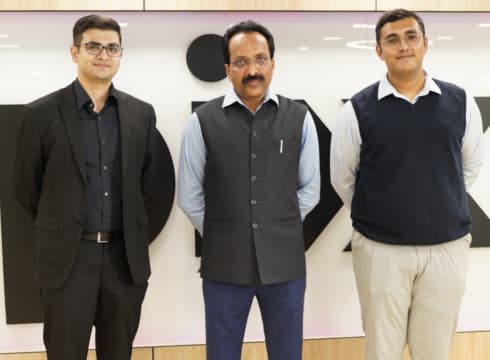The facility is set up in an area spanning more than 30,000 sq ft and will allow Pixxel to streamline the production process of satellites from concept to launch
The new facility can handle more than 20 satellites simultaneously that can be turned around within a timeframe of six months at its full capacity
Pixxel aims to launch six satellites in 2024 and 18 in 2025. The startup is gearing up to launch the first three satellites in June this year
Inc42 Daily Brief
Stay Ahead With Daily News & Analysis on India’s Tech & Startup Economy
Spacetech startup Pixxel inaugurated its first satellite manufacturing facility in Bengaluru on January 15. The facility was inaugurated by Indian Space Research Organisation’s (ISRO) chairman S Somanath.
In a statement, Pixxel said that the facility is set up in an area of more than 30,000 sq ft and consolidates all satellite manufacturing services. It will provide a comprehensive Spacecraft Assembly, Integration, and Testing (AIT) facility under one roof.
The facility will help the startup ensure a streamlined production process from concept to launch. It would provide Pixxel the space to build its satellites from scratch and manufacture, integrate, and test them for launch conditions before shipping to the launch site.
Founded in 2019 by Awais Ahmed and Kshitij Khandelwal, Pixxel is building a constellation of hyperspectral earth imaging satellites to provide insights to sectors like agriculture, mining, environment, among others.
The startup plans to launch six satellites, named Fireflies, in 2024 and 18 more by 2025. It is gearing up to launch the first three satellites in June this year. The satellites will weigh around 50 kg each, substantially higher than the 15 kg weight of the demo satellites, Shakuntala and Anand, launched by Pixxel in 2022.
Speaking at the sidelines of the event, ISRO’s Somanath told Inc42 that hyperspectral is a niche area and will give Pixxel an edge over others that are working on multispectral satellites.
The ISRO chairman also commended Pixxel’s journey so far and said it is bound to succeed.
Commenting on the launch of the facility, Pixxel CEO Ahmed said, “The inauguration of the new facility… will bolster our mission to build a health monitor for the planet. By increasing our capacity to build more satellites, we will deliver even more critical data to our customers faster so they can make informed decisions and address the needs of key industries such as agriculture, energy, forestry, and environmental monitoring.”
Pixxel is now looking to bolster its B2G collaborations. Last year, the spacetech startup won a grant from iDEX (Innovations for Defence Excellence under the Ministry of Defence) to manufacture miniaturised multi-payload satellites for the Indian Air Force.
Both Somanath and the Pixxel team hinted at spacetech startups getting an increasing number of government projects going ahead. In 2025, Pixxel sees at least 15% of its total revenue coming from the B2G collaborations and the rest from its commercial operations.
The spacetech startup’s upcoming projects will take shape at its new facility. With this facility, Pixxel will establish a robust infrastructure for large-scale satellite manufacturing.
Pixxel said the facility can handle more than 20 satellites simultaneously that can be turned around within a timeframe of six months at its full capacity.
Since its inception, Pixxel has raised a total funding of $71 Mn. It counts the likes of Google, Lightspeed, Blume Ventures, and Omnivore VC among its backers. It last raised $36 Mn in its Series B round in June 2023.
Ahmed said that with the startup already generating revenue, it is well-poised to grow without any immediate need for external funding.
With the Indian government opening up the space sector for private players, a number of spacetech startups, including PierSight, Skyroot, and Agnikul Cosmos, have risen to fame over the last few years. These startups have also attracted funding from investors.
According to Inc42 data, more than 150 spacetech startups raised over $285 Mn in funding between 2014 and 2023. The Indian spacetech market is projected to reach a size of over $77 Bn by 2030.
{{#name}}{{name}}{{/name}}{{^name}}-{{/name}}
{{#description}}{{description}}...{{/description}}{{^description}}-{{/description}}
Note: We at Inc42 take our ethics very seriously. More information about it can be found here.


